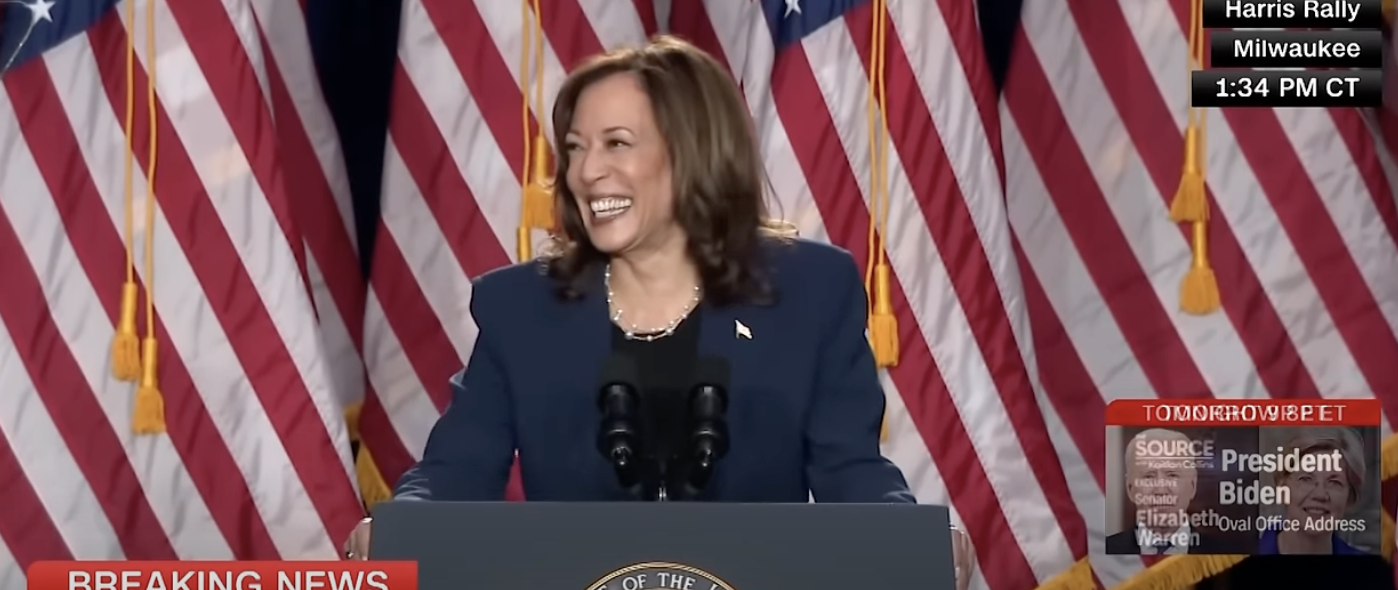Kamala Harris at one with Biden on Ukraine and China but more sympathetic to Palestinians

US Vice President Kamala Harris is more sympathetic to Palestinians than President Joe Biden. She backs Ukraine like him and is likely to follow his China policy but is speaking out against the war in Gaza.
She pressed Israeli Prime Minister Benjamin Netanyahu on Thursday (July 25) to come to a Gaza ceasefire deal that would ease the suffering of Palestinian civilians, striking a tougher tone than President Joe Biden.
Gaza and Israel
“It is time for this war to end,” Harris said in a televised statement after a meeting with Netanyahu.
“We cannot allow ourselves to be numb to the suffering and I will not be silent,” she said about the humanitarian crisis gripping Gaza after nine months of war between Israel and Hamas militants.
“Israel has a right to defend itself, and how it does so matters,” she added.
Harris said a two-state solution is the only way to ensure Israel remains a “secure, Jewish and democratic state,” while providing Palestinians with the “freedom” they “deserve.”
Netanyahu opposes a two-state solution that would make Palestine a separate state from Israel.
Though her husband, Douglas Emhoff, is Jewish, Harris, a Baptist, takes a more nuanced view of Israel than Biden.
She wasn’t present when the Israeli Prime Minister Benjamin Netanyahu addressed a joint session of the Congress on Wednesday (July 24). Instead, she went for a prescheduled engagement with the historically black sorority Zeta Phi Beta in Indiana.
However, she condemned the anti-Israeli demonstrators who showed their support for the Hamas militants fighting against Israel and burnt an American flag in Washington, DC.
The Gaza conflict has splintered the Democratic Party, and sparked protests against Biden over the depth and scale of his support for Israel. A drop in support among Arab Americans could hurt Democratic chances in Michigan in the November election.
Observers expect Harris to continue to support Israel and other US allies in the Middle East. But she made it clear on Thursday that she was losing patience with Israel’s military approach.
Russia and Ukraine
Harris, like Biden, supports Ukraine in its defence against Russia and is expected to continue his policies. In June, she represented the U.S. at the Summit for Peace in Ukraine, where she had her sixth meeting with President Zelenskyy.
“Ukraine needs our support,” Harris told NBC News. “And we must give it.”
A fierce critic of Russian President Vladimir Putin, she criticized Russian attacks on Ukrainian civilians as “crimes against humanity”.
Harris shares Biden’s commitment to Nato.
At this year’s Munich Security Conference, she pledged an “ironclad” U.S. commitment to NAatos Article 5 requirement for mutual self-defence.
She has criticized her Republican rival, Donald Trump, who has threatened to pull out of Nato.
“Donald Trump has embraced Putin,” Harris said at a July 11 campaign event in North Carolina. “Trump threatened to abandon Nato and encouraged Putin to invade our allies.”
China
Harris is expected to continue Biden’s tough policy on China. She favours “de-risking” from Beijing, reducing Western economic dependence on China.
Enjoying this article?
Subscribe to get more stories like this delivered to your inbox.
She worked on legislation as a senator promoting human rights in Hong Kong.
Harris also co-sponsored the Uyghur Human Rights Policy Act, empowering the U.S. government to impose sanctions against “foreign individuals and entities responsible for human rights abuses” in Xinjiang.
She is expected to continue supporting Taiwan. In September 2022, she said, “We will continue to support Taiwan’s self-defence, consistent with our long-standing policy.”
Commenting on tensions in South China Sea, she said: “China has challenged the freedom of the seas. China has flexed its military and economic might to coerce and intimidate its neighbours.” Undaunted, she added, “We will continue to fly, sail, and operate undaunted and unafraid wherever and whenever international law allows.”
Harris opposed Trump’s charm offensive towards North Korean leader Kim Jong Un and criticized the Trump administration for not curbing Pyonyang’s nuclear threats.
Senoir Editor
